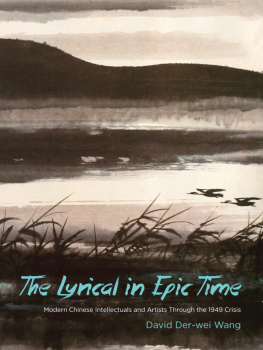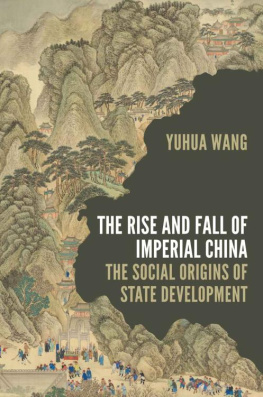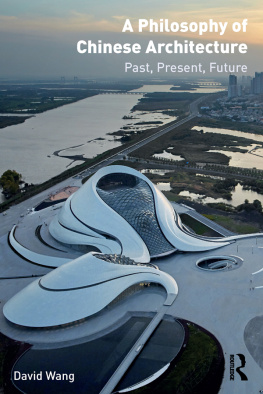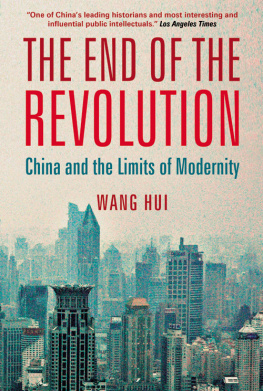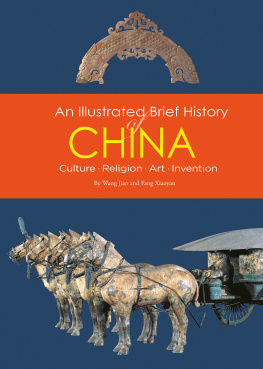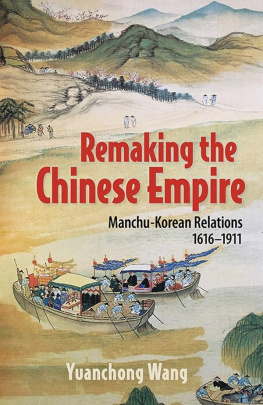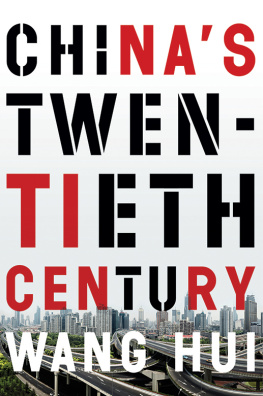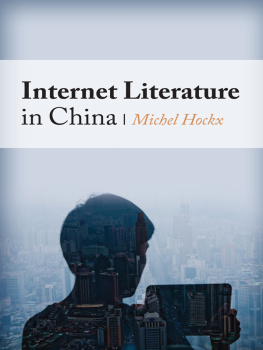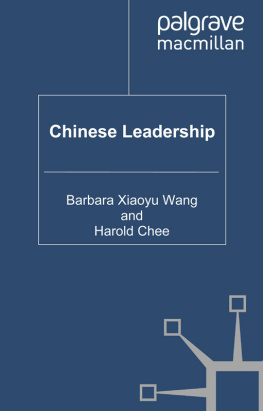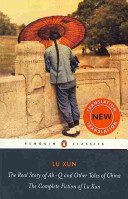The Lyrical in Epic Time
The Lyrical in Epic Time
Modern Chinese Intellectuals and Artists
Through the 1949 Crisis
David Der-wei Wang
COLUMBIA UNIVERSITY PRESS New York

Columbia University Press wishes to express its appreciation for assistance given by the Chiang Ching-kuo Foundation for International Scholarly Exchange and Council for Cultural Affairs in the publication of this book.
Columbia University Press
Publishers Since 1893
New York Chichester, West Sussex
cup.columbia.edu
Copyright 2015 Columbia University Press
All rights reserved
E-ISBN 978-0-231-53857-2
Library of Congress Cataloging-in-Publication Data
Wang, Dewei, author.
The lyrical in epic time : modern Chinese intellectuals and artists through the 1949 crisis / David Der-wei Wang.
pages cm
Includes bibliographical references and index.
ISBN 978-0-231-17046-8 (cloth : acid-free paper) ISBN 978-0-231-53857-2 (electronic)
1. Chinese literature20th centuryHistory and criticism. 2. Literature and societyChina. 3. MusicChina20th centuryHistory and criticism. 4. Painting, Chinese20th centuryHistory and criticism. 5. Calligraphy, ChineseHistory20th century. 6. Motion picturesChinaHistory20th century. 7. Modernism (Literature)China. 8. ChinaIntellectual life20th century. I. Title.
PL2303.W275 2015
895.109'0052dc23
2014008487
A Columbia University Press E-book.
CUP would be pleased to hear about your reading experience with this e-book at .
COVER IMAGE: Luhua feiyan (Reeds and geese, 1980s). Courtesy of Ms. Feng Yeh
COVER DESIGN: Milenda Nan Ok Lee
References to websites (URLs) were accurate at the time of writing. Neither the author nor Columbia University Press is responsible for URLs that may have expired or changed since the manuscript was prepared.
CONTENTS
I AM MOST GRATEFUL to my colleagues in the Chinese, Sinophone, and Sinological worlds, particularly Professors Zong-qi Cai, Yu-yu Cheng, Suk-hueng Cheung, Susan Daruvala, Leo Ou-fan Lee, Olga Lomov, and Zhang Songjian, for their thoughts and comments throughout the process of writing this book. Above all, I am deeply indebted to Professors Kowk-kau Leonard Chan and Ko Ching-ming, whose insights and encouragement have been an invaluable source of inspiration. I would also like to thank Professors Chen Pingyuan, Li Nan, Huang Ying-che, Ko Chia-cian, Tang Yonghua, William Tay, Wang Wenjuan, Xia Xiaohong, and Xu Qingping; and Dr. Liao Chao-heng, Madame Barbara Ming-yi Fei, Madame Liao Jingwen, Ms. Feng Yeh, Mr. Shen Longzhu, and Mr. Kamloon Woo for their research assistance and advice on earlier drafts of the book.
Professor C. T. Hsia (19212013) passed away as I was completing this book. I have the deepest respect for his erudition and for his and Mrs. Della Hsias guidance and friendship all these years. I cherish the many good times we shared during my tenure at Columbia University. My colleagues at HarvardWai-yee Li, Jie Li, Stephen Owen, Karen Thornber, Xiaofei Tian, and Eugene Wanghave always illuminated me with their thoughts and works. I could not have finished the book without the benefit of their scholarship and dialogue.
Specials thanks go to Professors Michael Berry, Andrew Rodekohr, Carlos Rojas, and Chien-hsin Tsai for reading the manuscript and offering critical suggestions, and to all my students involved in the project over the past years.
Ms. Jennifer Crewe of Columbia University Press has been extremely conscientious and insightful in helping me prepare the book. I thank her and her colleagues, Leslie Kriesel, Jonathan Fiedler, and Kathryn Schell, for their editorial expertise and professionalism. I thank National Taiwan University Press for publishing parts of in Chinese and for granting the rights to reproduce the illustrations.
I would like to express my gratitude to Dr. Richard Kunst, Ms. Bibby Moore, Mr. Jesus Arias, Ms. Hilda Chagua, and my family members, Jennifer, Mike, Vivian, and Jonathan, for their support during a long and challenging period of writing.
This book is dedicated to my mentor, Professor Arthur E. Kunst (19342013).
THE LYRICAL IS PERHAPS one of the least likely terms to be associated with China in the mid-twentieth century. This period witnessed a succession of crises: the Second Sino-Japanese War, the Civil War, the national split in 1949 and the resulting exodus of millions of Chinese, and the campaigns in New China, culminating in the Cultural Revolution. The magnitude of the tumult was such that to focus on the lyrical in this period has been dismissed as anachronistic and self-indulgent.
However, I contend that precisely because the mid-twentieth century in China was characterized by national cataclysms and mass movements, all of which brought drastic changes to Chinese lives, this period helps bring into view the extraordinary work of Chinese lyricism at its most intense. Lyricism in Chinese literary culture has always implicated an interaction between the self and the world, and during this period there emerged waves of literary and artistic practices that sought to identify individual options in the face of the atrocities. Lyricism can be seen as a poetics of selfhood that informs the historical moment and helps define Chinese modernity in a different light.
The writers, artists, and intellectuals discussed in this book could hardly be called a unified group: they were liberals, leftists, conservatives, revolutionaries, collaborators, ideological converts, and self-styled individualists. They expressed themselves in recourse to a variety of media forms such as poetry, fiction, intellectual treatise, political manifesto, cinema, theater, painting, calligraphy, and above all, music. For all their divergent backgrounds and commitments, they each invoked the lyrical as they came to ruminate on the stakes of selfhood vis--vis solidarity, pondering historical contingencies and poetic/artistic assertions and experimenting with forms that they believed best cast light on and responded to the time of crisis.
More significantly, the invocation of the lyrical did not happen merely in mid-twentieth-century China. Contemporary Western critics with different theoretical and ideological beliefs, ranging from Martin Heidegger to Theodor Adorno and from Cleanth Brooks to Paul de Man, all took up lyricism as a way to critique the perilous, epic time. The lyrical was treated alternately as a modernist malaise, a socialist virtue, a bourgeois sentiment, a metaphysical trope, and a revolutionary imaginary. The Chinese cases further intensify the permeable nature of this discourse.
Why did these literary and cultural figures feel impelled to address lyricism at a time when action at an epic scale seemed more urgently in order? What constituted the lyrical discourse of the time? More pertinently, what is the relevance of such a lyrical calling of the past century to our time? These are the questions that this book intends to explore. Accordingly, the title, The Lyrical in Epic Time, takes me beyond the more predictable the lyrical in an epic time to describe the overarching implications of the figures under discussion: their provocations and articulatory tonalities, their experimentations in reaction to historical tempos. Here the lyrical and the epic are inspired by the way Jaroslav Prek (19061980) used them,
Through a constellation of figures, genres, and approaches, I seek to map out the multiple strains of lyrical representation during this period, and contemplate their significances with regard to contemporary China. These chapters share two thematic interventions. First, the lyrical discourse helps me rethink the sufficiency of the extant paradigm of Chinese modernity, which is largely dominated by the double claims of revolution and enlightenment. I seek to triangulate the paradigm by arguing that revolution can be powered by both political action and poetic provocation, and that enlightenment can have an impact only when charged with creative sensibilities. Such a lyrical discourse, however, also carries the perfidious symptoms of its time. These include a cluster of tensions rarely touched on in traditional poetics: betrayal and brutality are seen as exchangeable with expressive sincerity, ideological fanaticism evokes an unlikely resonance with idyllic yearning. Above all, lyricism begets its own disavowal, in terms of self-abjuration, suicide, and silence.

